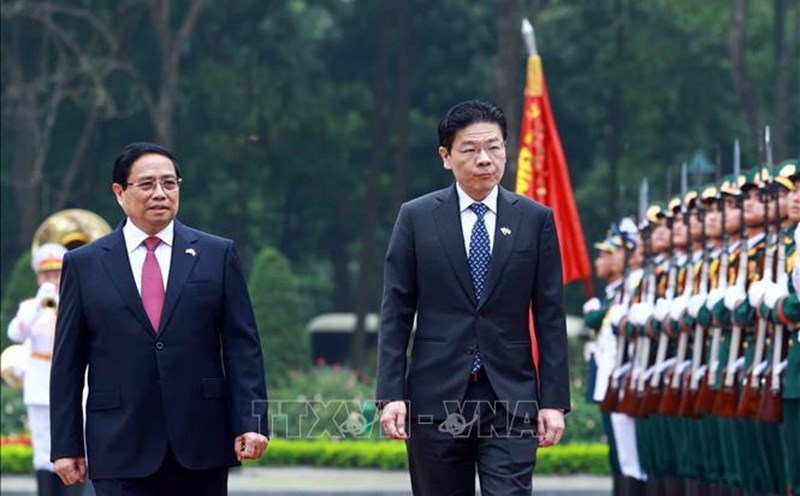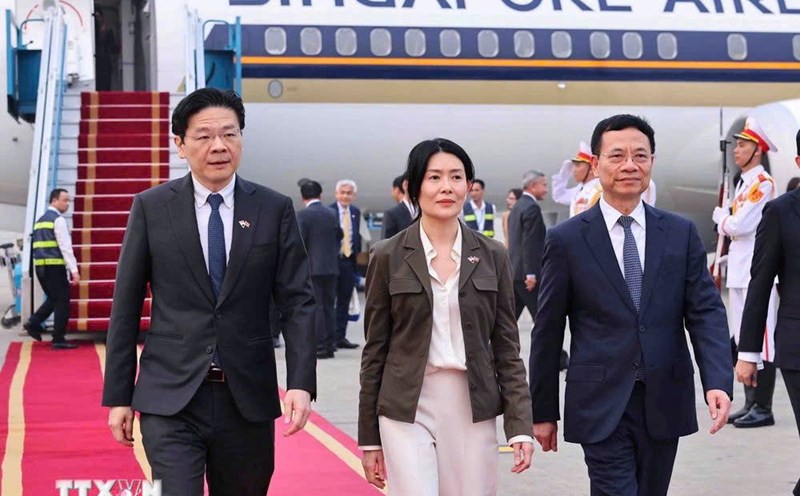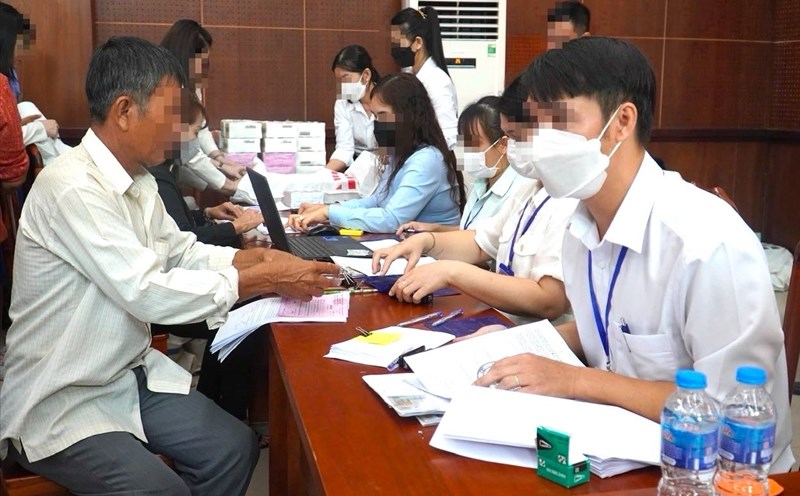The Ministry of Foreign Affairs said that at the talks, Prime Minister Pham Minh Chinh emphasized that Singapore Prime Minister Lawrence Wong's official visit to Vietnam is of great significance, as the first high-level delegation exchange activity after the two countries established a Comprehensive Strategic Partnership during General Secretary To Lam's official visit to Singapore; as a highlight for 2025 on the occasion of the 80th anniversary of Vietnam's National Day and the 60th anniversary of Singapore's National Day, helping to send a message of determination to act between the two countries to concretize the contents of the new cooperation framework.
Prime Minister Lawrence Wong emphasized the establishment of a historic Comprehensive Strategic Partnership in bilateral relations, in particular, Vietnam is Singapore's first Comprehensive Strategic Partnership in ASEAN, reflecting the trust, closeness and aspiration of the leaders and people of the two countries to develop the Vietnam - Singapore relationship more deeply and effectively.
The two leaders were pleased with the strong development steps in bilateral relations. Singapore maintains its position as the world's second largest investor in Vietnam; 2 more Vietnam - Singapore industrial parks have been granted investment approval policies, creating a network of 20 VSIP zones in 14 provinces and cities of Vietnam, with stable growth in trade turnover, reaching 10.3 billion USD in 2024; Vietnam becomes the largest rice exporter to Singapore.
The two sides also noted positive progress in defense - security cooperation, education - training, science - technology, tourism, labor and people-to-people exchanges.
The two leaders agreed on "determined and timely" measures to increase political trust, creating a new breakthrough for the Comprehensive Strategic Partnership.
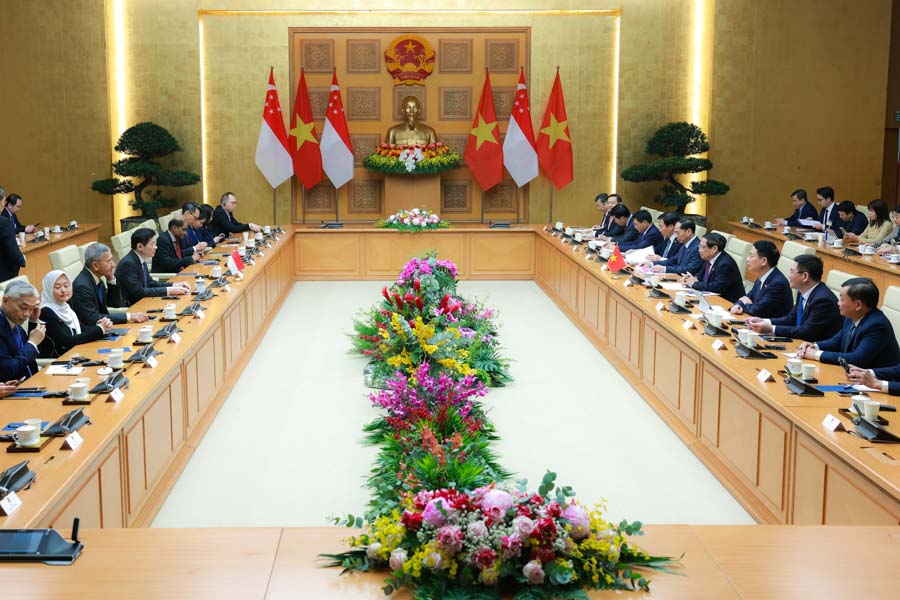
The two Prime Ministers pledged to strengthen economic cohesion through promoting the effectiveness of the five pillars of the Agreement on Connecting the two economies, the Green Economy - Digital Economy Partnership, making Vietnam - Singapore cooperation a typical model of cooperation in the region.
Prime Minister Pham Minh Chinh suggested that Singapore create conditions for bringing Vietnamese agricultural, forestry, fishery and processed foods into Singapore's distribution system; develop a VSIP 2.0 network in a sustainable and smart direction, applying smart manufacturing technology to optimize the effectiveness of attracting high-quality capital to Vietnam.
The Singaporean Prime Minister agreed that the two countries need to clarify the main contents to upgrade the current VSIP system to VSIP 2.0, meeting the requirements of greener, smarter and more efficient development.
The Singaporean Prime Minister agreed with Prime Minister Pham Minh Chinh's "6 more" proposal, thereby promoting deeper political trust, more substantial defense and security cooperation, connecting the two economies more effectively, exchanging people more closely, cooperation in science - technology, breakthrough innovation and closer international cooperation; suggesting that the two countries soon take practical steps in offshore wind power exports, exchanging carbon credits, cooperating in the field of financial technology through projects connecting cross-border retail payments using QR codes, transmitting cross-border data, thereby creating more favorable conditions for production and business activities of the two countries' enterprises.
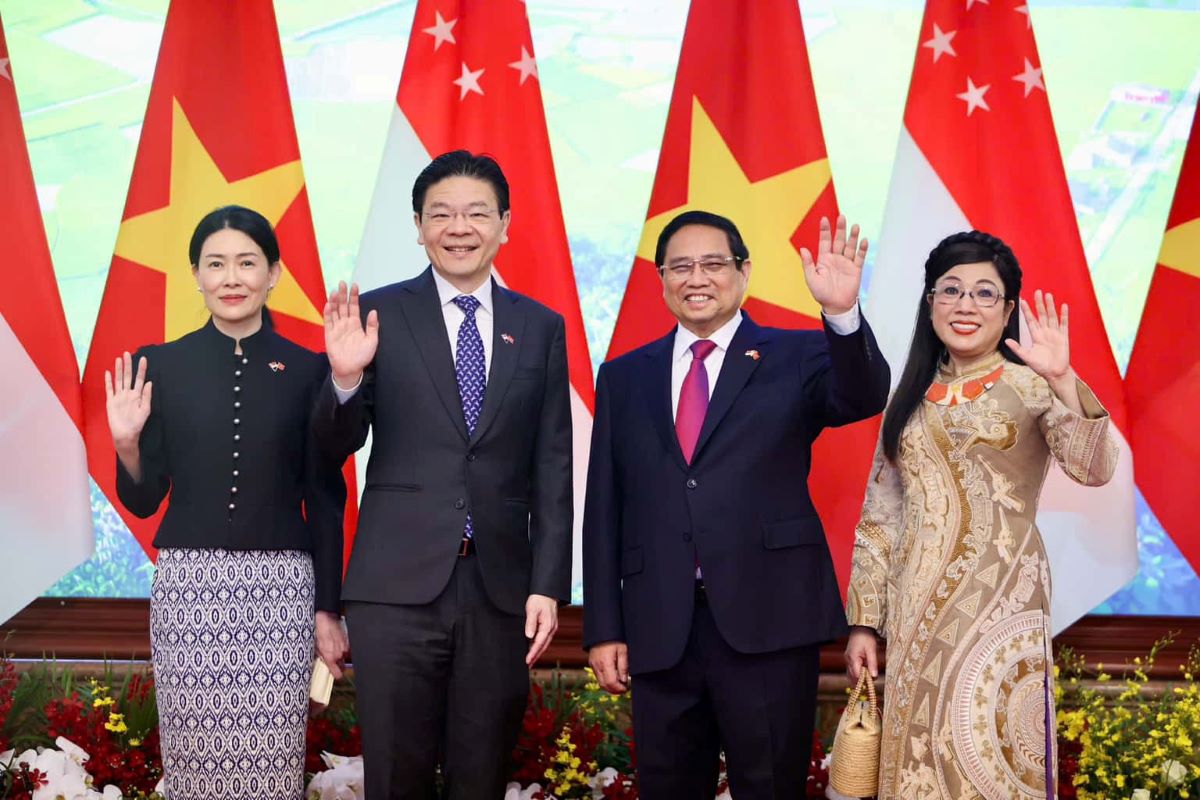
The two Prime Ministers agreed to maintain ASEAN's common stance on the East Sea issue; emphasize the importance of freedom, safety of navigation and aviation; ensure full and effective implementation of the Declaration on the Conduct of Parties in the East Sea (DOC); create a favorable environment, strive to build a practical and effective Code of Conduct in the East Sea (COC), in accordance with international law and the 1982 United Nations Convention on the Law of the Sea (UNCLOS).
After the talks, the two Prime Ministers witnessed the signing of cooperation documents between the two countries, including the Protocol on Cooperation in Building the Action Program to Implement Comprehensive Strategic Partnership and agreements in the fields of wind and power trade, cross-border payments using QR codes, digital development and innovation, and people-to-people exchanges.

